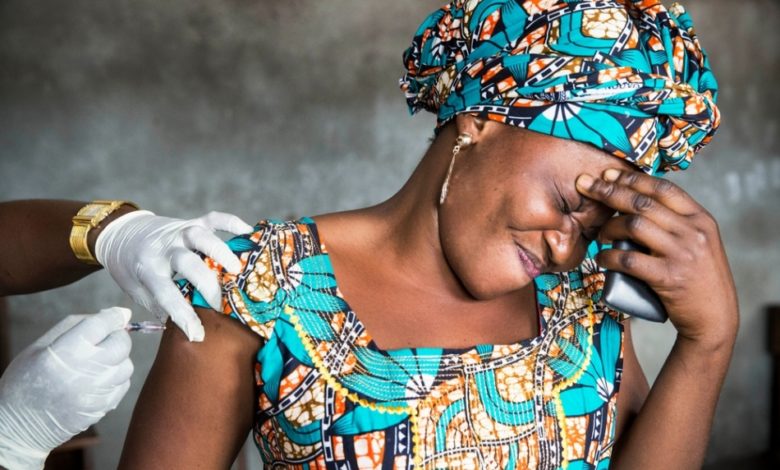Yellow Fever: Fraction Of Vaccine Doses As Effective – MSF

Giving people a fraction of a yellow fever vaccine is effective and could help vaccinate millions of more people during emergencies, a recent study led by Médecins Sans Frontières (MSF) research arm Epicentre reported.
In line with this, the World Health Organisation (WHO) will be changing its guidelines in terms of the vaccine during emergencies.
The data from the clinical trials by MSF’s research arm Epicentre have found that giving one-fifth of the standard yellow fever vaccine dosage is safe and effective.
“When big yellow fever epidemics hit, countries and MSF need to access vaccines urgently. Vaccination is the most important measure for preventing the disease.
“This study means that treatment providers can now rest assured that giving people smaller doses of any of the World Health Organization (WHO) prequalified yellow fever vaccines will protect the person in front of them while helping to keep even more people safe, Myriam Henkens, MSF international medical coordinator said.
The Epicentre study, in collaboration with the Kenya Medical Research Institute, Institut Pasteur de Dakar, and the WHO, was a randomized, double-blind trial in Mbarara, Uganda and Kilifi, Kenya conducted between November 6, 2017, and February 21, 2018.
During this period, researchers administered either one-fifth or a standard dose of yellow fever vaccine to 960 adults between the ages of 18 and 59 years old. People receiving one-fifth of the dose were found to have an immunological response that was considered non-inferior to the standard dose.
This is an important step toward a future updated policy on fractional doses. Thanks to these results, the current WHO policy on fractional doses of yellow fever vaccines in times of shortages during an outbreak can be expanded to all prequalified vaccines.
This clinical trial marks the first time that all four WHO prequalified yellow fever vaccines have been assessed in the same study.
The study used the only four existing WHO-approved vaccines, which are derived from multiple strains of the virus: 17DD (Bio-Manguinhos/Fiocruz, Brazil), 17D-213 (Federal State Unitary Enterprise of Chumakov Institut of Poliomyelitis and Viral Encephalitides, Russia), 17D-204 (Institut Pasteur de Dakar, Senegal), and 17D-204 (Sanofi Pasteur, France).
“This research is significant because it shows that trials involving different manufacturers, where their products are independently evaluated, is possible.
“This is proof that global medical researchers can band together to do independent and objective research that results in products and recommendations that truly meet the needs of people and ensure effective and safe medicines and vaccines,” said Rebecca Grais, research director of MSF’s Epicentre.
Yellow fever is a mosquito-borne acute viral hemorrhagic fever that causes 30,000 deaths per year, most of which occur in Sub-Saharan Africa. However, the disease is on the rise in Central and South America.
While this infection is asymptomatic or causes only mild symptoms in many people, a small percentage of those infected experience a more toxic stage of the disease that can cause internal bleeding and severe damage to the liver and kidneys.
Approximately half the people who enter this stage of yellow fever die within a few days.
There’s no cure for yellow fever, so prevention is extremely important. A single dose of the vaccine can protect a person for life.
But the vaccine takes around a year to produce, coupled with the fact that it is difficult to predict the number of doses required yearly to deal with an outbreak of the diseases, which ultimately leads to shortages in places where it is needed urgently.
This means that production capacity cannot meet global needs during epidemics, leaving people without protection and medical providers like MSF and governments empty-handed when vaccines are needed most.
With this new development, more people can be vaccinated against yellow fever in times of dosage shortages.
Yellow fever is endemic to 34 countries in Africa. Since 2000, MSF teams have responded to yellow fever epidemics in Angola, Democratic Republic of Congo (DRC)—including in 2015-16 during DRC’s largest outbreak in 30 years—Guinea, Sudan, Sierra Leone, the Central African Republic, and Chad, among others.
The outbreak of yellow fever in 2016 in Angola and DRC brought to light vaccine supply issues as routine vaccination was suspended in some African countries to ensure there was enough yellow fever vaccine to fight the outbreak in Angola and DRC.
In typically low-resource regions like these where health care is limited for those who fall ill, preventive measures such as vaccinations have an enormous impact.
“More than a billion people currently live in areas of the world where yellow fever is common,” said Isabelle Defourny, MSF director of operations.
“As MSF teams have seen working on the ground all over the world, this is a disease that can result in massive outbreaks. This is especially true in big cities where yellow fever can spread rapidly, causing thousands of deaths and very serious humanitarian consequences.
“At a time when the world is fighting so many other health threats, it’s encouraging to know that research like this will directly result in more lives being saved,” Defourny added.
Support Our Journalism
There are millions of ordinary people affected by conflict in Africa whose stories are missing in the mainstream media. HumAngle is determined to tell those challenging and under-reported stories, hoping that the people impacted by these conflicts will find the safety and security they deserve.
To ensure that we continue to provide public service coverage, we have a small favour to ask you. We want you to be part of our journalistic endeavour by contributing a token to us.
Your donation will further promote a robust, free, and independent media.
Donate HereStay Closer To The Stories That Matter




